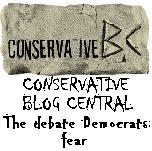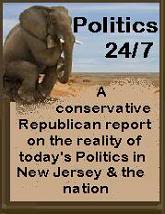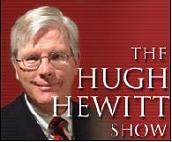
If one had to name a winner of the night, that decision might range widely. Initially, Herman Cain seems to have had the most impact among viewers who got their first real look at him. As I predicted in a previous post, Herman Cain did produce some of the wow factor that he has come to be known for. But in the final analysis I would have to say that former Minnesota Governor Tim Pawlenty got the most out of the night. While each of the candidates were gaffe free, Pawlentys performance was poised, polished and presidential. He demonstrated a clear level of confidence and comfort that helped convey both a command of the issues and the capacity to be a formidable force as the 2012 presidential campaign moves forward. Igt wasn’t the showstopper that he needs to become an automatic frontrunner, but it was the type of performance that keeps him in the top tier of the field.
The opening question was thrown to Governor Pawlenty who was asked about the statement he made a month ago in which he called President Obama weak. Moderator Brett Baier asked the Governor if he thought President Obama still looked week after the successful mission that killed Osama bin Laden? Governor Pawlenty made sure to give the President credit for his decision but he added that moment is not the sum total of Americas foreign policy.
In a similar question, former Pennsylvania Senator Rick Santorum bluntly stated that all the things President Obama has done right in foreign policy are continuations of Bush policies He cited the Presidents continuation of the Gitmo policy, finishing the mission in Iraq, and continuing our efforts in Afghanistan, as proof of his point.
On Afghanistan, Herman Cain claimed to not necessarily be willing toannouncea final decision on the war in Afghanistan until he was in a position where all the facts that only a President is privy to, are before him. Pointing to his successful business career he added that he takes pride in making an informed decision. Cain did however make some good points in insuring that wemust define our mission in Afghanistan more clearly than it currently is.
As for Ron Paul and Gary Johnson, they shared the position that the United States should pull out of Afghanistan no later than tomorrow. Paul did however go further by claiming that now that bin Laden has been taken care of, we should end our efforts in Afghanistan because it hasnt helped us or anybody in the Middle East. That statement will be seen by many as a slap in the face to the men and women who continue to keep the Taliban and Al Qaeda on the run and are insuring that Afghanistan does not again become a breeding and training ground for the type of terrorism that was responsible for 9/11 and triggering the War on Terror.
The sharpest exchange of the evening came when the issue of enhanced interrogation came up.
Tim Pawlenty offered support for such extreme measures and in an impassioned defense of his position, explained that if possible, the terrorists would havekilled not 3,000 Americans, not 30,000 Americans but 300,000 Americans if they could have on 9/11 and in response to that harsh reality, harsh policies may at times be necessary.
When all the candidates were asked to indicate, by a show of hands, if they would support the use of enhanced interrogation tactics under certain circumstances, Herman Cain, Tim Pawlenty, and Rick Santorum raised their hands. Former New Mexico Governor Gary Johnson and Congressman Ron Paul did not. When moderator Chris Wallace pointed this out, Ron Paul stated that such tactics dont achieve anything. To which Rick Santorum interrupted with Paul thats just not true. Santorum proceeded to argue that the information obtained through enhanced interrogation tactics of detainees at Gitmo was responsible for the information that led to the capture and killing of Osama bin Laden. He then punctuated the point by reminding the Congressman we wouldnt have been able to make the raid in Pakistan had we not been in Afghanistan
At that point, Herman Cain chimed in and recalled the remarks of Israeli Prime Minister Benjamin Netanyahu who two months after 9/11 said that the terrorists objective is to kill all of us, and in what turned out to produce one of the nights most rousing spontaneous round of applause added so yes I support using whatever means possible to protect the people of this nation.
On the economy, the budget and taxes, all agreed that President Obama is helplessly lost on the issue and generally agreed upon reforms to Medicare and reductions in spending. For his part, Herman Cain called for an elimination of all taxes in exchange for a 28% Fair Tax. Both Cain and Governor Johnson called for the elimination of all Corporate taxes.
In total, most all the candidates performed adequately. Probably the least inspiring though was Gary Johnson. Johnson seemed a little awkward and failed to distinguish himself from Ron Paul by demonstrating that unlike Paul, as a Governor, Johnson didnt just preach the virtues of his Libertarian-Republican philosophy, he actually implemented it. Beyond that, Johnson did find it necessary to at one point step out of order to remind the debates questioners, that he was there and that maybe they should not direct all their questions to just his four opponents.
For his part, Herman Cains first appearance to the nation, within the context of a presidential campaign, was a success. While it may not have been the breakout performance he really needs, the particular debate format he was kept to, gave no one a real chance to achieve such a thing. Ultimately, he proved himself to be exceptionally worthy of consideration for the job he is seeking.
Ron Pauls participation in the debate allowed him to offer his usual compelling arguments but continued to put forth his policy positions with a type of rigidity and extremism that make them seem unrealistic to most voters. And while there were some obnoxious yells from the crowd that are typical of some within the Paul fan base, he did little to expand his base of support and to pull himself out of his normal single digit or low teens election returns.
As for Rick Santorum, while he showed himself to be viable, the greatest benefit that he got from the debate was a definite shoring up of the social conservative base which at the moment, is all that is really keeping his fledging campaign in the game.
Filed under: Debates, Gary Johnson, Herman Cain, Rick Santorum, Ron Paul, Tim Pawlenty | Tagged: #tcot, 2012 caucus schedule, 2012 election sites, 2012 election strategy, 2012 Presidential Election, 2012 primary schedule, 2012 race for president, 2012 Republican caucuses, 2012 Republican Presidential Primaries, 2012 republican primary, about the republican presidential candidates, Analysis of the first Republican presidential debate, Anthony Del Pellegrino, Best quote from the first presidential debate, biographies, bios, campaign 2012, campaign tactics, candidate bios, digg, election 2012, First Republican presidential debate, G.O.P., Gary Johnson, Gary Johnson in the presidential debate, gitmo, GOP, gop12, Herman Cain, How did Herman cain do in the presidential debate, How did the Candidates repsond in the first republican presidential debate, issues discussed in the first republican presidential debate, kempite, Osama bin Laden, political strategy, politics 24/7, Politics 247. U4Prez, presidential commercials, presidential debate question on enhanced interrogation, race for the white house, reaction to the first presidential debate, reddit, Republican caucuses, Republican presidential candidate biographies, Republican primaries, republicans running for president in 2012, Rick Santorum, Rick santorum in the presidential debate, Ron Paul, StumbleUpon, the 2012 presidential campaign, the 2012 presidential election, The presidential election, the republican race for President, transcrippt of the republican presidential debate, video of the first republican presidential debate, White House 2012, White House 2012 on Twitter, whitehouse12, whitehouse2012, who got the most applause in the first presidential debate, Who is running for President, Who will win the presidential election, Who won the first presidential debate, wordpress political blogs | 2 Comments »






 Online Conservative Talk Radio
Online Conservative Talk Radio Poitics 24/7
Poitics 24/7 The Bulldog Pundit
The Bulldog Pundit The Right Scoop
The Right Scoop To Be Right
To Be Right Verum Serum
Verum Serum






 Mark Levin
Mark Levin Michelle Malkin
Michelle Malkin The Hugh Hewitt Show
The Hugh Hewitt Show
